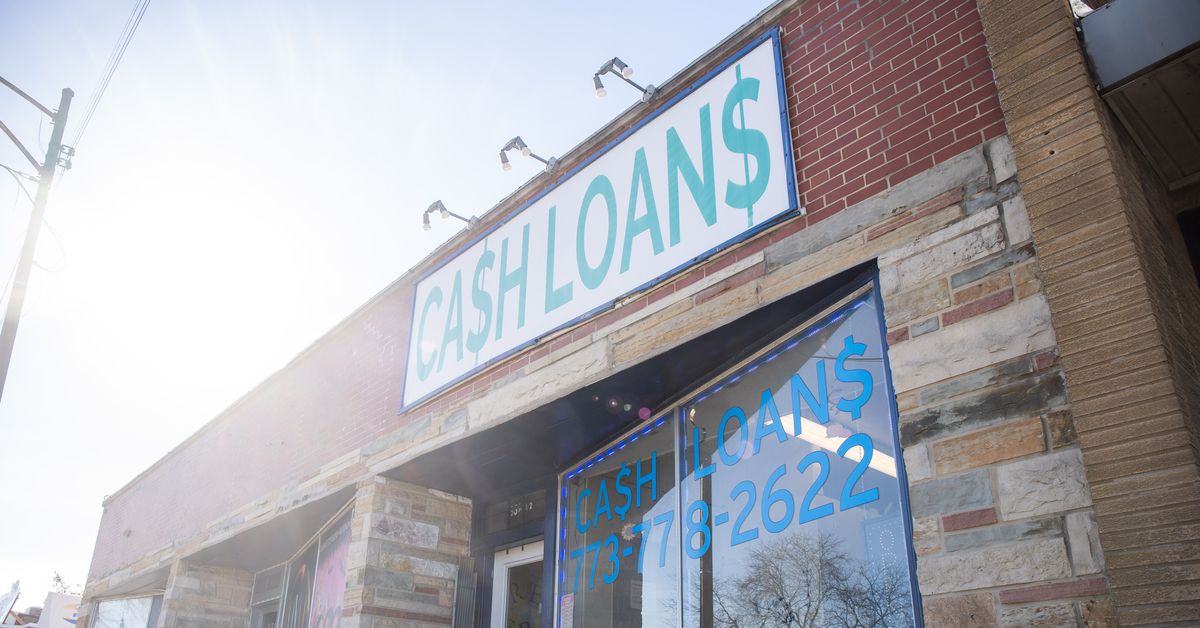Payday loans are a problem. Can a public bank be part of the solution?
When the coronavirus first threatened the health and finances of Americans, Tiffany Moore of Forest Park first approached an installment lender in hopes of financial relief.
The good news: She got approval for a loan of $ 9,500 to compensate a tenant on her property who couldn’t pay rent. The bad news: An interest rate of 35.989%.
It was easy to sign a contract that brought temporary relief. But realizing that she would end up paying more than double what she had borrowed, Moore paid off the loan sooner.
Payday loans, title loans, and installment loans with exorbitant interest can put a financial strain on borrowers. This remains the case, even though the Illinois Predatory Loan Prevention Act now imposes a 36% cap on the annual interest rate that lenders can charge.
These exorbitant deals continue to proliferate in black and brown neighborhoods, as a report by Stephanie Zimmermann of the Sun-Times clearly shows.
Lawmakers should consider a way to help vulnerable communities access credit without resorting to high interest loans.
Payday lenders emphasize that they serve high-risk neighborhoods and borrowers that other lenders avoid.
Yes, they provide a necessary service. But what desperate borrower can get out of a dire financial situation while borrowing money at a 36% interest rate?
Divestment cycle
The report highlights data produced by the nonprofit Woodstock Institute, which found that the major zip codes for payday loans were predominantly black. Postal codes included 60619 and 60620 on the south side, both 95.7% black and including Chatham, Avalon Park, Auburn Gresham and Washington Heights. Postal code 60614, which includes Lincoln Park and is 84% white, showed the lowest incidence of payday borrowers.
“Consumers only need triple-digit interest rate loans if they’re stuck in a cycle of divestment. If they weren’t, they would get a safer, more affordable product, ”said Brent E. Adams, senior vice president of policy and communications at the Woodstock Institute. “These lenders depend on the divestment cycle and are irrelevant if communities are thriving. “
In March, that editorial board backed the rate cap on payday loans, writing that Illinois should impose it for the sake of fairness and for the sake of racial fairness. Some 40% of Illinois borrowers ultimately fail to repay their payday loans. More often than not, they find themselves caught in a cycle of debt, with old loans turning into new ones.
Another step down the road could be to bring affordable banking services back to low-income neighborhoods that have suffered from divestment.
Members of Congress have expressed support for a pilot postal banking program in rural and urban communities across America. The objective would be for the government to learn from the pilot project and establish permanent banking services as part of the US Postal Service. The non-profit bank is said to offer low-cost checking and savings accounts, mobile banking, and low-interest loans.
State Representative Mary E. Flowers lobbied the Community Bank of Illinois Act for more than a decade, but faced continued opposition from bankers.
“Banks are all about making money, and here I’m offering lower interest rates for residents,” Flowers told us. “All I want to do is make loans to people that they wouldn’t lend to.”
We are not convinced by the idea of a public bank, at the federal or state level. There are a lot of unanswered questions about how the model works, as well as the potential cost to taxpayers.
But the idea of a system that allows low-income, unbanked borrowers to meet their basic banking needs and also have access to small, low-interest loans is worth considering.
There is no reason to expect payday loan companies to agree to lower the cap to 36% further, if at all. Ed McFadden, spokesperson for the American Financial Services Association, cites a 2015 Federal Reserve investigation in which lenders said they could not break even on loans below $ 2,532 at a 36% annual percentage rate.
The public postal bank is not a straightforward solution, but it could help put a stop to the predatory payday loan problem.
Send letters to [email protected]


Comments are closed.